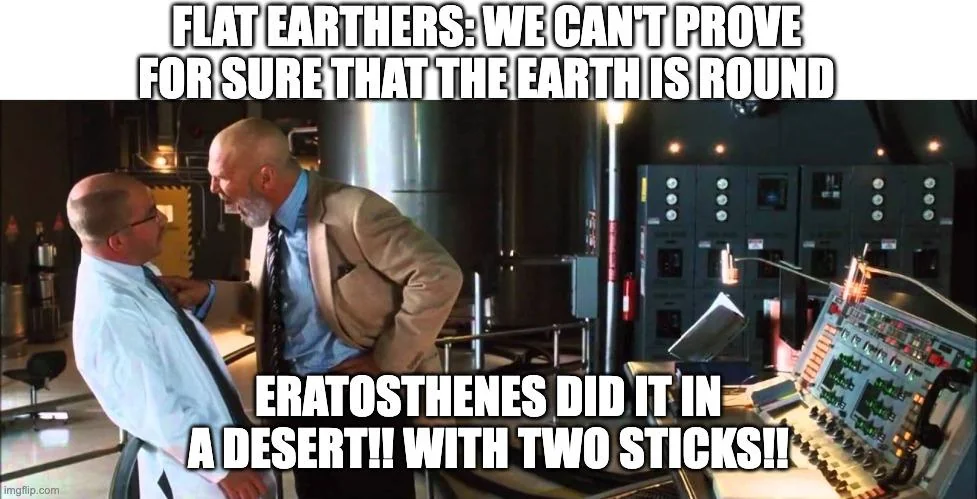this post was submitted on 15 Feb 2025
905 points (99.1% liked)
Science Memes
12330 readers
3254 users here now
Welcome to c/science_memes @ Mander.xyz!
A place for majestic STEMLORD peacocking, as well as memes about the realities of working in a lab.

Rules
- Don't throw mud. Behave like an intellectual and remember the human.
- Keep it rooted (on topic).
- No spam.
- Infographics welcome, get schooled.
This is a science community. We use the Dawkins definition of meme.
Research Committee
Other Mander Communities
Science and Research
Biology and Life Sciences
- [email protected]
- [email protected]
- [email protected]
- [email protected]
- [email protected]
- [email protected]
- [email protected]
- [email protected]
- [email protected]
- [email protected]
- [email protected]
- [email protected]
- [email protected]
- [email protected]
- [email protected]
- [email protected]
- [email protected]
- [email protected]
- [email protected]
- [email protected]
- [email protected]
- [email protected]
- [email protected]
- [email protected]
- !reptiles and [email protected]
Physical Sciences
- [email protected]
- [email protected]
- [email protected]
- [email protected]
- [email protected]
- [email protected]
- [email protected]
- [email protected]
- [email protected]
Humanities and Social Sciences
Practical and Applied Sciences
- !exercise-and [email protected]
- [email protected]
- !self [email protected]
- [email protected]
- [email protected]
- [email protected]
Memes
Miscellaneous
founded 2 years ago
MODERATORS
you are viewing a single comment's thread
view the rest of the comments
view the rest of the comments

Of course it's not spherical, it's wider at the equator and lumpy
Unless you go in an advanced metrology laboratory, or look at Jupiter with a telescope, it's the most spherical object you will ever see.
Jupiter is quite more flattened than Earth due to how fast it spins and it being made mostly of gas.
If you want spherical, look at Venus... or, even better, the Sun (not directly, though, of course; use some kind of filter or reflector).
I'm not sure how true that is. It's smoother than anything else, but the degree to which it is oblate makes it less spherical than, say, a pool ball, doesn't it?
It's easy to check in Wikipedia https://en.wikipedia.org/wiki/Equatorial_bulge:
The planet Earth has a rather slight equatorial bulge; its equatorial diameter is about 43 km (27 mi) greater than its polar diameter, with a difference of about 1⁄298 of the equatorial diameter.
It's not something so outwordly small that people couldn't do better, but it's better than bearing balls or a spherographic pen tip. It's way, way smaller than any deformation you will find in a game ball.
Wow, that's incredible. I thought for sure it would be a difference of something like 2–5%. But to actually be barely one third of one percent‽
Out of curiosity, I looked it up. Officially a pool ball is 57 mm diameter ± 0.127 mm. If we add and subtract that to different axes of the ball, that's actually surprisingly close, coming in at 0.44% bulge, not a whole lot more than Earth's 0.34%. It's actually closer than I expected.
Barely. Shrink it down to the size of a pool/billiards ball and Earth is actually smoother.